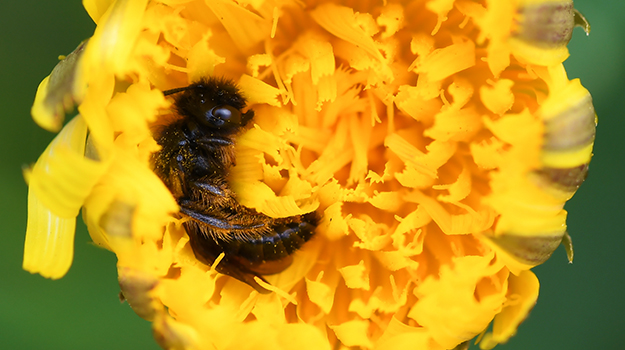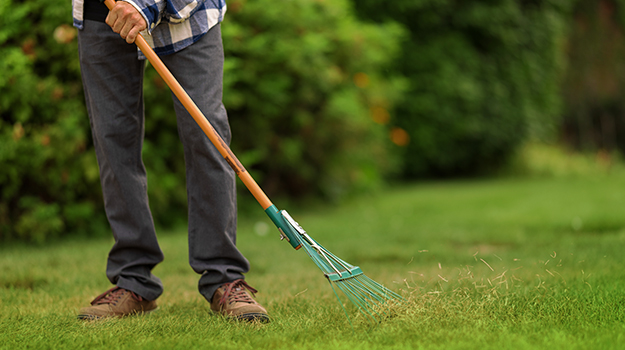No need to look for an excuse to not clean the yard right away this spring. Here’s one that’s perfect. No, you’re not just putting it off. You are rather helping protect the fragile ecosystem around us.
This time of year, leaving dead leaves and debris on the ground is the most sensible and ecological thing to do.
"If you need an excuse to not clean your yard for another week, now you have one," said Heather Proctor, a professor in the University of Alberta's department of biological sciences. "It's for the good of biodiversity."
Protecting overwintering beneficial insects
If butterflies and other small critters fly south each winter with migratory birds, several insects stay here and, just like us, wait patiently for spring to arrive.
Some hide deep in the ground, below the frost line. Others will find shelter in dead leaves, wilted flowers or fallen bark to seek protection through the long winter months.
No matter how they survive the winter, those insects wait for nice weather to return before coming out. Bumblebees like to sleep in when spring starts setting in. They take more time to reappear.
Where do beneficial insects hide in the garden?
Don’t be too quick to call it a spring. Some of us grab our rake before the snow has even completely melted. In doing that, we exterminate or send to the compost pile vast amounts of hard-working pollinators and predators that are essential to the garden.
To give you an idea, know that the ladybugs that feed on aphids spend the winter clustered in leaf litters. Large pollinators (bumblebees, wasps and bees) get through the winter hidden in the ground, in hollow stems, under the bark of logs or under a pile of old wood or dead leaves. For close to six months, they slow down their metabolism hoping their reserve will last until spring.
The perennials you didn’t cut in the fall, the wood pile that wasn’t stored or the few dead leaves scattered on the ground can remain in place for a few more weeks, until the ground is completely thawed and bees have started flying again. That simple gesture will allow you to keep allies that will care for your garden all summer.
Drive pests away and shelter beneficial insects
On the other hand, if you fought a tenacious predator all summer the year before, you could get rid of it while it’s sleeping by removing the debris at the base of the plants that were damaged.
Are you a cleaning fanatic and, with the exception of a few leaves here and there, your yard is all set for summer already? You can still create a safe haven for beneficial insects by making, in an inconspicuous corner, a small pile of leaves, wood and compost that will remain untouched all year long. An old tree stump works just as well or a pile of big sticks, but sometimes it's harder to hide if you don’t have much space.
Those little things will help save the queens and ensure the survival of generations of pollinators.


